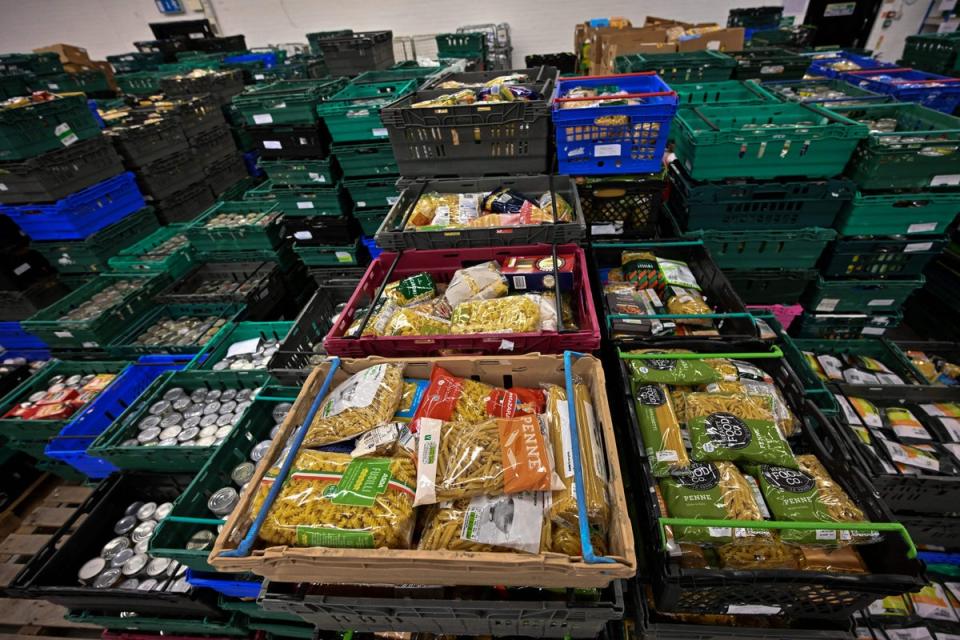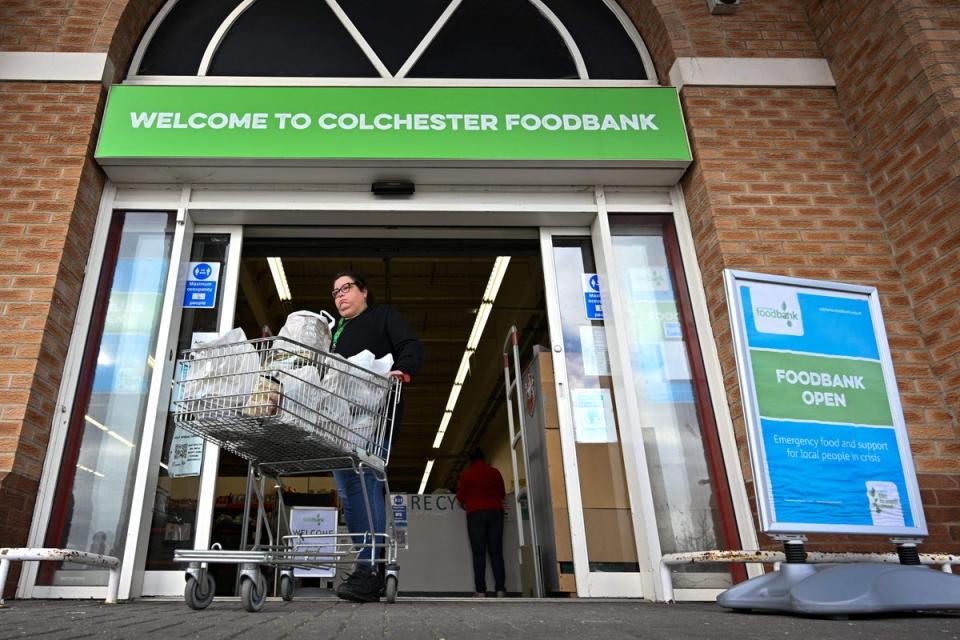Surge in pensioners needing emergency food provisions as food banks help record number of people
Food banks have seen a “concerning” increase in pensionersneeding emergency food parcels in the past year, new figures that show the deepening cost-of-living crisis reveal.
Food bank charity TheTrussell Trust delivered a record 3.1 million emergency food parcels to people across the UK in the year 2023/4, up over 100,000 on the year before.
Part of this increase was fuelled by more pension-age households needing help, with 179,000 parcels provided for older people in this age bracket. This is a 27 per cent increase on the year before.
The emergency food parcels are packages of food that will keep one person going for three or seven days. Food banks also reported seeing many more people in 2023/4 who were turning to them for the first time.
655,000 people used a Trussell Trust food bank for the first time last year, a 40 per cent increase from five years ago. Two thirds of all the support provided by food banks last year was for families with children.

Wendy Doyle, manager at Leeds south and east food bank, said they had seen an “alarming” rise in families and pensioners using their services in the past year. There was a 34 per cent increase in families and 27 per cent increase for pensioners.
She added: “Our volunteers are telling us that they are dealing with pensioners who can’t afford to put food on the table due to having to pay higher energy costs and that is the choice they are having to make.
“A lady who came to the food bank recently told us that she had never had to use charity before. She said that she had always been able to manage, even while bringing four children up on her own, but when she came to the food bank she was in a situation where she had to choose between keeping warm or eating.”,

The Trussell Trust, which runs a nationwide network of over 1,000 food banks, is calling for the government to introduce an essentials guarantee to Universal Credit, which would ensure that everyone has a protected amount of financial support to afford basic essentials.
They have also warned that the plan to end the Household Support Fund in September will have “devastating consequences” for families in England.
Their warning comes after former prime minister Gordon Brown launched an emergency plan to tackle child poverty, which argues for an injection of money into the Sure Start programme.
Mr Brown has called on Jeremy Hunt to require banks to hold a fraction of their deposits in the Bank of England, enabling government to recover £2bn in interest payments.
Emma Revie, chief executive of the Trust, said food banks should not be allowed to “become the new norm”.
She added: “Food banks are not the answer. They will be there to support people as long as they are needed, but our political leaders must take bold action to build a future where everyone has enough money to afford life’s essentials.”
Iain Porter, senior policy adviser at the Joseph Rowntree Foundation, said the figures revealed the “painful economic reality facing families”.
A DWP spokesperson said: “There are 1.1 million fewer people in absolute poverty compared to 2010 and our £108bn cost of living support package prevented 1.3 million people falling into poverty in 2022-23.
“After boosting benefits and raising the State Pension, we’re putting more money in people’s pockets by raising the National Living Wage, cutting taxes and driving down inflation while investing billions through our Back to Work Plan to help over a million people break down barriers to work and become more financially secure.”


